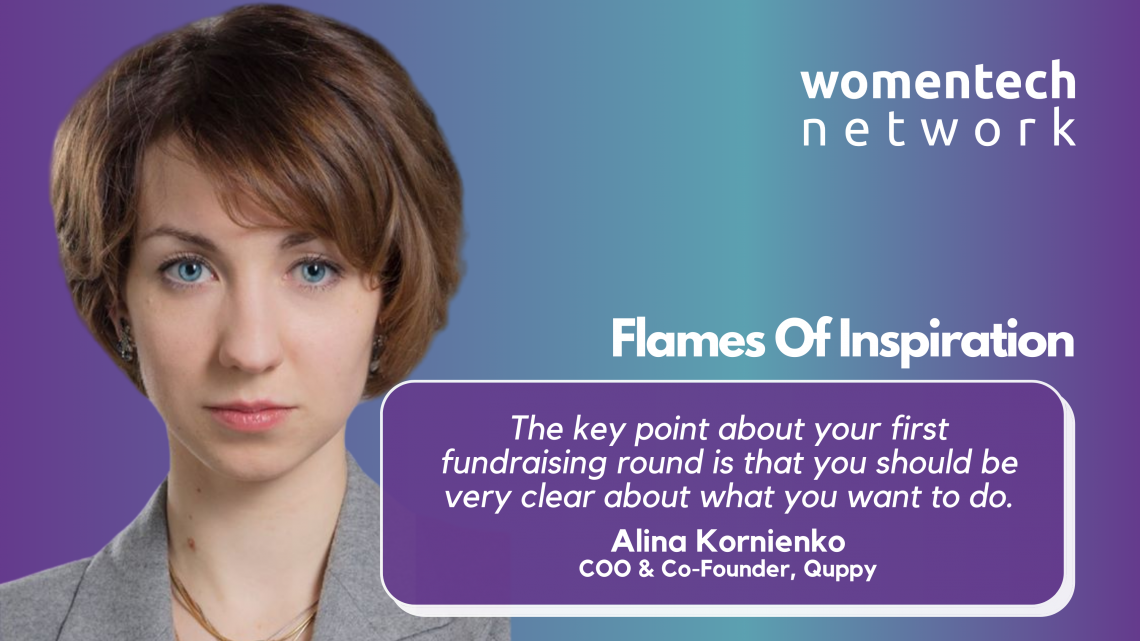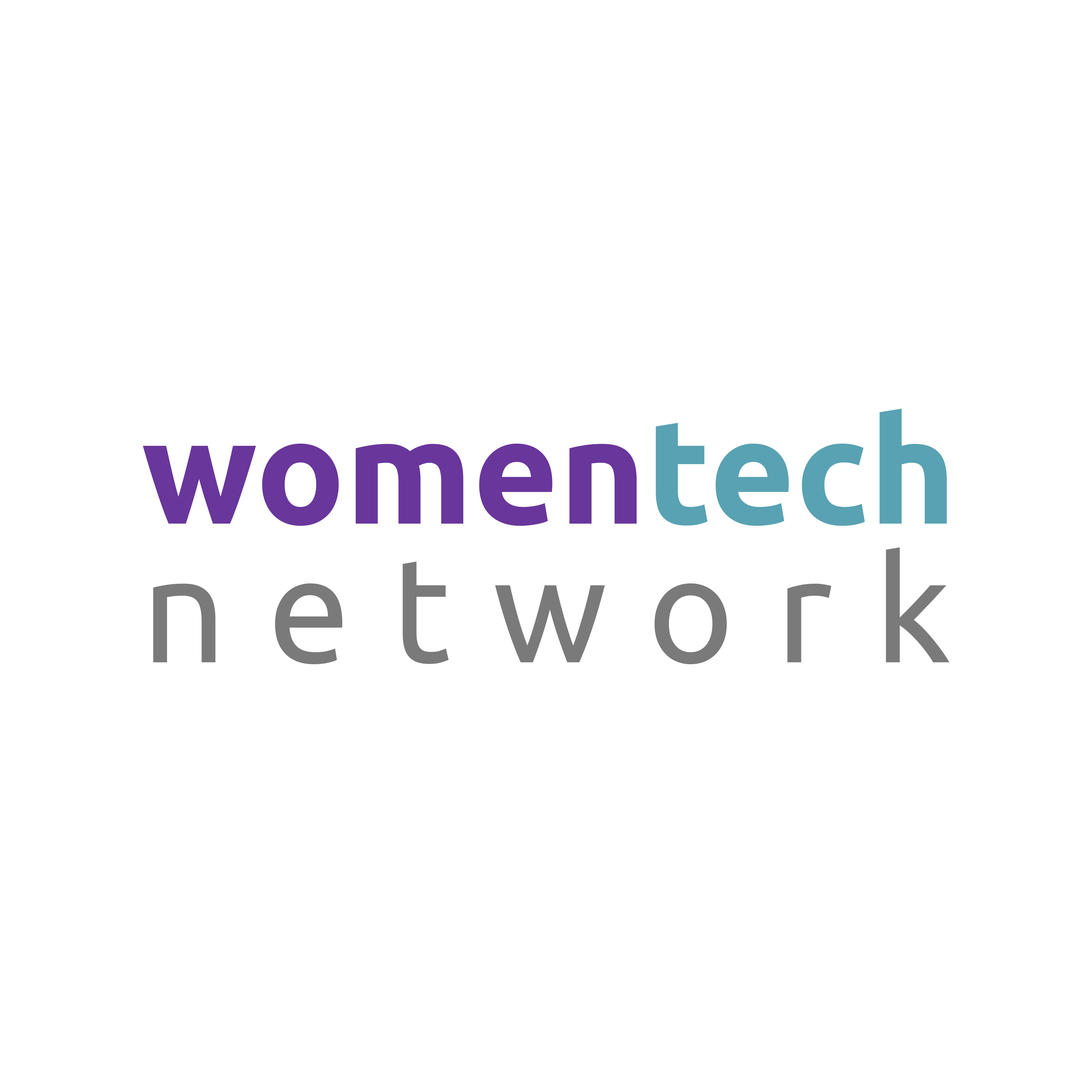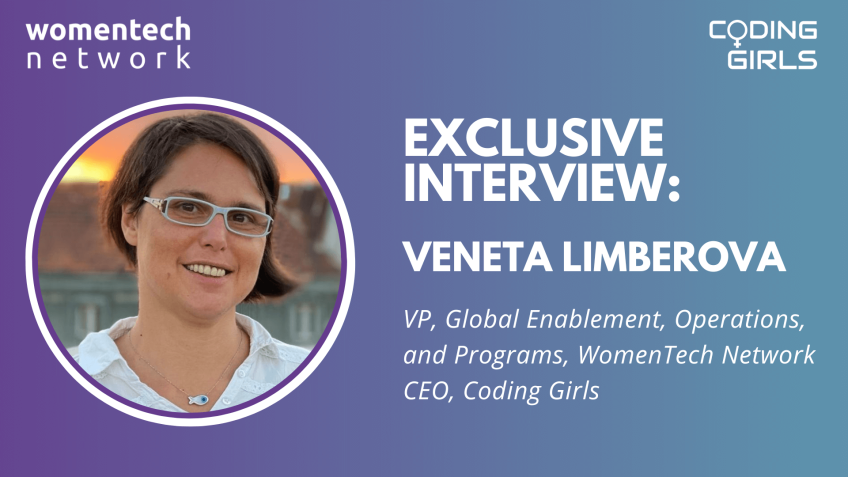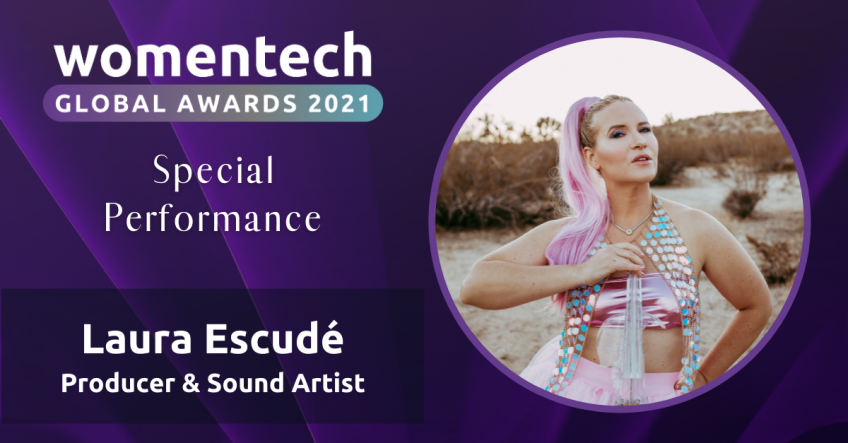
Learn from the experience of Alina Kornienko, COO and Co-Founder of Quppy, a digital payment solution consolidating your bank cards and accounts.
During a Fireside Chat with Alina, we discussed how to fundraise for a startup, pitch effectively, and build a personal brand that aligns with your business' brand, and more.
Alina has a Ph.D. from Paris-VIII in linguistics and communication and a Master's in area studies and international relations, as well as translatology. She has more than 10 years of experience in business communications and business development in different areas such as banking, payment solutions, fin-tech, and business aviation.
Find excerpts from the interview below, follow the timestamps to see them in the video of the chat, or watch the whole interview at the end of the article.
Alina has a background in linguistics, so how did she get into fintech?
The division between the humanities and tech shouldn’t exist. […] By the end of my Ph.D. work, friends of mine, now my co-founders, asked me to join a special, brand new service for different financial activities. They were good at tech, IT, and finances, but they didn’t understand anything about branding, communications, or building a story.
It really helped me a lot to apply my purely linguistic research to the field where I was trying to face a new audience and community while trying to still attract those who knew about fintech.
Cross-disciplinary collaboration should extend beyond one field; like in Alina’s experience, where she applies humanities in tech.
What are the challenges that Alina faces/d as a woman in tech?
Despite the fact there are a lot of people from the banking and IT industry, which are both mostly male, the fintech industry attracts professionals from all races, all genders because to be able to grow, the fintech industry needs professionals.
Despite perceptions and gender problems, fintech is more accepting of diversity in Alina’s experience.
What is the competitive advantage of Quppy?
When we started this, we wanted to build a comfortable, unique, all-in-one solution for all the operations with digital currencies. But when we built it, we saw the problem is already solved; we needed to explore further problems that our clients might be facing.
So we started to build a truly all-in-one financial solution to provide our customers with a unique, personal banking, everyday financial experience. This problem became more crucial last year, with the quarantine, when local bank offices were closed.
We’re working on building a card consolidator so that you can choose the right card and account at the time of payment.
Quppy’s end goal is to become a one-stop solution for banking.
How did Covid in general affect the whole fintech industry? What will the industry look like in 2030?
There is no bad without good. Covid accelerated the fintech field drastically. People understood that either they will take the digital path and improve what they had and connect more services or they won’t be relevant in six months.
Fintech and the financial sector, they are taking in the concept of open banking. Sharing information and sources helps to accelerate cash flow and transactions.
Banking-as-a-service will be a growing trend and reality.
How did Quppy manage to create an environment and culture where people feel they belong, considering they have 70% women leadership?
In the very beginning, we had a very small team, but we already had an HR specialist. One of the IT developers was a woman; so were seven, and three of us were women.
My co-founders were from traditional spheres, but they were open to diversity. They wanted to hire passionate people and great professionals. […] Later down the line, we decided to create this experience, for women and men, where our team can stay close to their families, where we can have a culture of sharing - experience and expertise.
Quppy focused on hiring inspired professionals and they were open to everyone, despite gender.
What were some of Quppy’s key learnings while fundraising?
The key point about your first fundraising round is that you should be very clear about what you want to do. Investors want to hear that you really know what you're building and for whom.
Your pitch deck should have, first, the highlighted problem and solution; second, the audience for whom you’re solving a problem. Another thing is when you’re just starting, do not try to show the investors you would solve a bunch of problems. Show this one segment and solution that you know very well.
Be specific, show expertise, focus on less as more.
Which techniques should one use to build a personal brand? Is there a line between personal and company brand?
The transparency and the visibility of the team are the key approaches. It’s the team that makes the product, the solution. Don’t be afraid to be transparent, because that is the key step to the loyalty of the clients. They are human after all.
If you are a Founder, don’t be afraid to present and talk about your product. You’re the ambassador of your brand who can represent the philosophy of what you’re building.
Share about your experience and your product, but also show the other sides of you.
How do you build a team as a startup?
When we started, we said, ok we have our CTO, CFO, CEO, CIO, let’s see who we need. For example, in the very beginning, we needed a person who could build payment systems; who already knew that process.
Look at which sides of the project you need to cover. Don’t underestimate networks like WomenTech Network or LinkedIn because they are valuable to find the right person. Before hiring a person, have in mind what kind of people you really like to have.
For the Q&A and full interview, check out the video recording below.
Learn more about Quppy in our company highlight article here.






